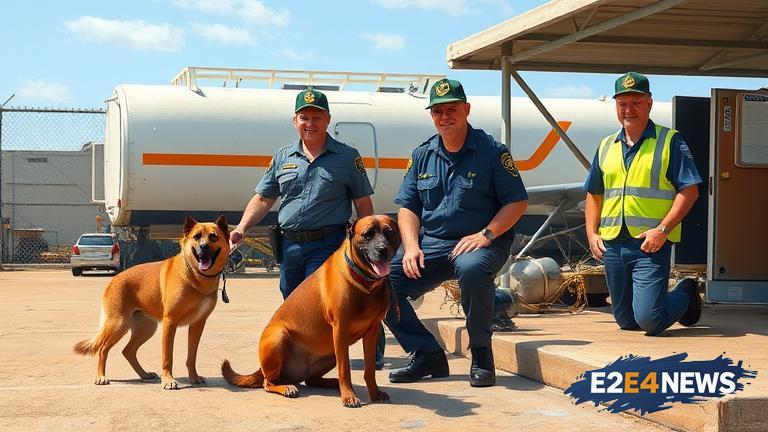Australia has taken significant steps to enhance its biosecurity measures, introducing extra detector dogs and new officers to its frontlines. The move aims to strengthen the country’s defenses against pests and diseases that could potentially harm its agricultural industry and environment. The detector dogs, trained to sniff out high-risk items, will be deployed at various ports and airports across the country. These canine officers will work alongside their human counterparts to identify and intercept prohibited goods, including food, plant, and animal products. The new officers, on the other hand, will be responsible for conducting inspections, gathering intelligence, and enforcing biosecurity regulations. The Australian government has recognized the importance of biosecurity in protecting the country’s $60 billion agricultural industry and its unique environment. The introduction of additional detector dogs and new officers is part of a broader effort to improve biosecurity measures and prevent the entry of exotic diseases and pests. The detector dogs have undergone rigorous training to detect a wide range of high-risk items, including meat, dairy, and plant products. They will be deployed at high-risk locations, such as international airports and seaports, to identify and intercept prohibited goods. The new officers will work closely with the detector dogs, as well as with other agencies, to gather intelligence and conduct inspections. They will also be responsible for educating travelers and traders about biosecurity regulations and the importance of complying with them. The Australian government has also introduced new technologies, such as X-ray machines and CCTV cameras, to enhance biosecurity screening and surveillance. The combination of detector dogs, new officers, and technology will provide a multi-layered approach to biosecurity, making it more difficult for pests and diseases to enter the country. The move has been welcomed by the agricultural industry, which recognizes the importance of biosecurity in protecting its interests. The industry has also acknowledged the significant economic benefits of strong biosecurity measures, including the protection of export markets and the prevention of costly eradication programs. The Australian government has committed to ongoing investment in biosecurity, recognizing that it is an essential component of the country’s agricultural and environmental policies. The introduction of additional detector dogs and new officers is a significant step forward in this effort, and will help to ensure that Australia remains a world leader in biosecurity. The country’s biosecurity measures are also recognized internationally, with many countries seeking to learn from Australia’s experience and expertise. The use of detector dogs, in particular, has been recognized as a highly effective tool in biosecurity screening, and has been adopted by several other countries. The Australian government has also established a number of partnerships with international organizations and countries to share knowledge and expertise in biosecurity. These partnerships will help to ensure that Australia remains at the forefront of biosecurity innovation and best practice. Overall, the introduction of additional detector dogs and new officers is a significant boost to Australia’s biosecurity frontlines, and will help to protect the country’s agricultural industry and environment from the risks posed by pests and diseases.
